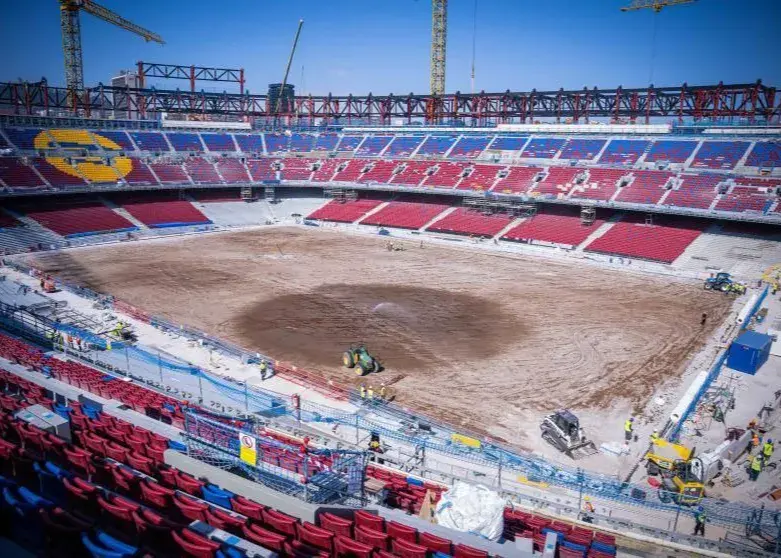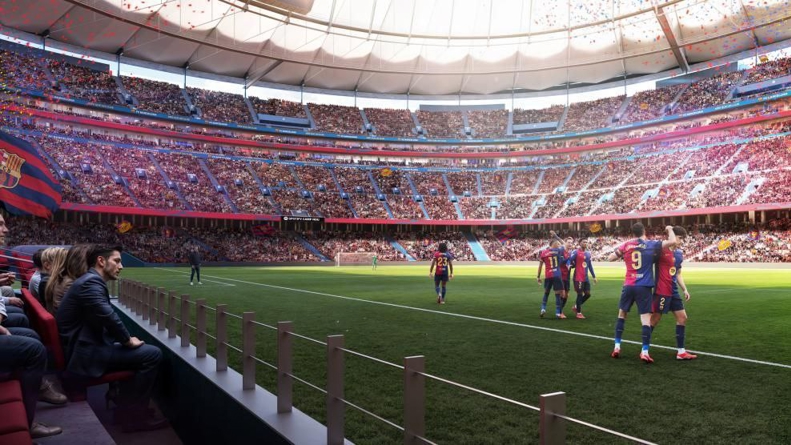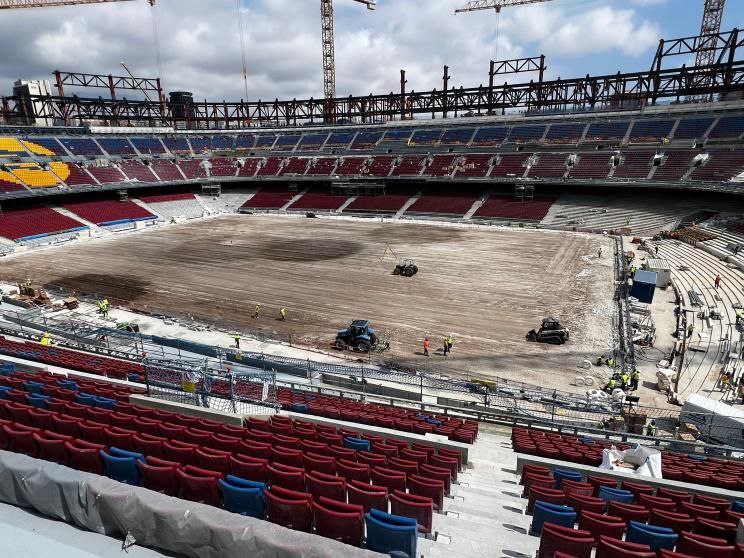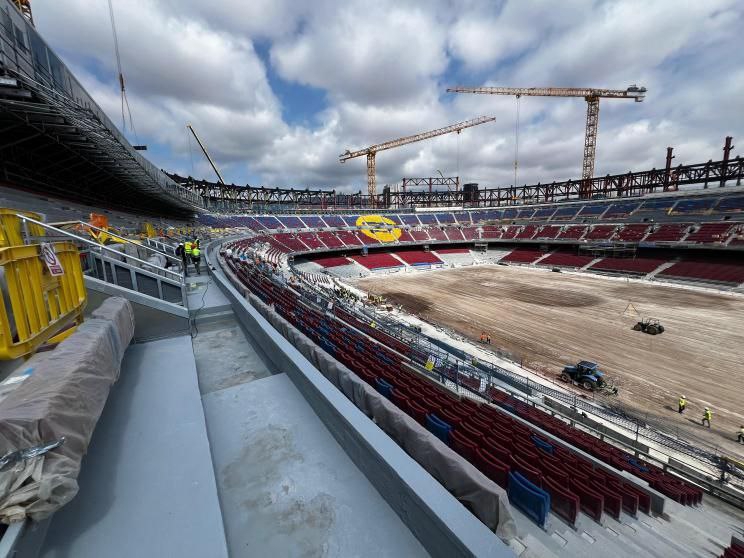Camp Nou Gradually Prepares for Barcelona’s Return (Photos)
New images of the ongoing construction at Spotify Camp Nou have been released, showing the stadium in its final stages of completion.

According to reports, construction work at Spotify Camp Nou continues to progress. The permit issued by Barcelona City Council, allowing 24/7 construction activities until April 30, has enabled workers to accelerate the project. The goal is for Barcelona to return to their home stadium, Camp Nou, by next season.
Renders released by Barcelona show what the new home of the Blaugrana will look like. Stunning images allow viewers to envision the renovated Camp Nou, including celebrations by players after goals. The stadium’s massive capacity of over 100,000 spectators is also evident.

Physically, seat installation is complete, and the pitch is being leveled for grass planting next week. A video released by the club shows significant progress in the interior spaces, entrances, and restrooms.
Work continues on the third-tier stands and access routes, with temporary 360-degree scaffolding being installed for necessary equipment until the new roof is completed.



VIP Seats: Key to Returning to 1:1 Rule
For the income from leasing 475 VIP seats to Qatari and Emirati investors (worth €100 million) to be accounted for this fiscal year, La Liga requires these seats to be physically constructed and delivered under the PSL (Personal Seat License) system.
According to Barcelona’s projections, these seats are expected to be built between the first and second tiers in May. Once completed, Limak Construction will issue an official document confirming delivery to the club.
Currently, this €100 million is considered an intangible asset and will not be fully accounted for until construction is complete. However, Barcelona received €58 million on January 3, but the full amount will only be recorded upon full contract fulfillment.
Crucially, Barcelona must prove ownership of the VIP seats by June 30 (end of the fiscal year). If achieved, the club will again comply with the 1:1 rule, allowing normal operations in the summer transfer window.